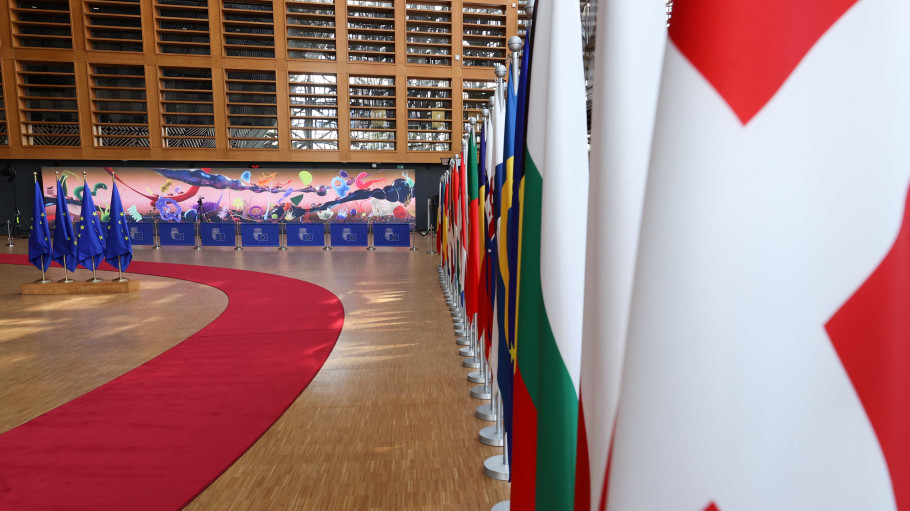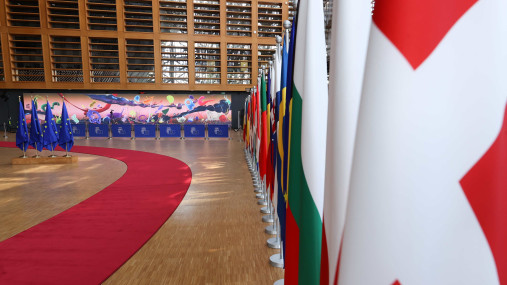
Press releases » France’s initiative, backed by strong Member State support, paves the way for a much-needed ‘highly effective’ EU trade measure, says EUROFER
France’s initiative, backed by strong Member State support, paves the way for a much-needed ‘highly effective’ EU trade measure, says EUROFER
Downloads and links
Recent updates

Brussels, 29 July 2025 – The proposal for a ‘highly effective’ new trade measure to counter global overcapacity and preserve the European steel industry’s capacities, published yesterday by France on behalf of a group of 11 Member States, is a timely initiative. The non-paper sets a clear course towards a comprehensive steel trade measure to replace the current safeguard regime at a critical moment, as the negative impacts of global overcapacity on the European steel industry continue to grow, says the European Steel Association (EUROFER).
“We welcome and strongly support this proposal, initiated by French Minister Ferracci with the backing of a significant number of key steel-producing Member States, including, besides France, Austria, Belgium, Bulgaria, Greece, Italy, Luxembourg, Poland, Romania, Slovakia and Spain. We call upon other Member States, the European Parliament and the Commission to fully support this initiative. This is exactly the kind of coordinated, ambitious action we need to stop the tsunami of cheap steel imports from destroying Europe’s industrial base, jobs, and green transition. Urgency and political determination are now more critical than ever: every day lost is a step further away from European industrial sovereignty”, said Axel Eggert, Director General of the European Steel Association (EUROFER).
“We expect the European Commission to give due consideration to constructive Member State initiatives that are clearly aligned with the ambition of the Steel and Metals Action Plan (SMAP) in ‘promoting and protecting European industrial capacities’ and ‘defending quality industrial jobs’. In a rapidly changing and increasingly uncertain geoeconomic context, time is running out. We urge the Commission to present as soon as possible its proposal for a ‘highly effective’ trade measure as committed under the SMAP, and to implement it without delay—well before the current safeguard regime expires. The ongoing uncertainty surrounding EU steel exports to the US and the lack of clarity around a potential EU-U.S. ‘Metals Club’ to tackle global overcapacity, clearly demonstrate that European steelmakers cannot afford further EU inaction. Europe can only be stronger with European steel,” concluded Mr Eggert.
Contact
Lucia Sali, Spokesperson and Head of Communications, +32 2 738 79 35, (l.sali@eurofer.eu)
About the European Steel Association (EUROFER)
EUROFER AISBL is located in Brussels and was founded in 1976. It represents the entirety of steel production in the European Union. EUROFER members are steel companies and national steel federations throughout the EU. The major steel companies and national steel federation of Turkey, Ukraine and the United Kingdom are associate members.
The European Steel Association is recorded in the EU transparency register: 93038071152-83.
About the European steel industry
The European steel industry is a world leader in innovation and environmental sustainability. It has a turnover of around €215 billion and directly employs around 298,000 highly-skilled people, producing on average 146 million tonnes of steel per year. More than 500 steel production sites across 22 EU Member States provide direct and indirect employment to millions more European citizens. Closely integrated with Europe’s manufacturing and construction industries, steel is the backbone for development, growth and employment in Europe.
Steel is the most versatile industrial material in the world. The thousands of different grades and types of steel developed by the industry make the modern world possible. Steel is 100% recyclable and therefore is a fundamental part of the circular economy. As a basic engineering material, steel is also an essential factor in the development and deployment of innovative, CO2-mitigating technologies, improving resource efficiency and fostering sustainable development in Europe.

Brussels, 11 September 2025 – The lack of a solution for steel in the EU-U.S. trade negotiations, the ongoing unpredictability of the global geoeconomic situation, and persistently weak demand against an ever-growing global steel overcapacity are squeezing the European steel market. In 2025, the outlook points to stagnation, with potential recovery only in 2026 — conditional on improvements in the global economy and an easing of trade tensions. According to EUROFER’s latest Economic and Steel Market Outlook, another recession both in apparent steel consumption (-0.2%, revised upwards from -0.9%) and in steel-using sectors (-0.7%, revised downwards from -0.5%) is confirmed for 2025. Growth prospects are now delayed at least to 2026, with projections of a rebound for both apparent steel consumption (+3.1%) and steel-using sectors (+1.8%). However, steel imports continue to hold historically high market shares (25%) in 2025.
Third quarter 2025 report. Data up to, and including, first quarter 2025
Brussels, 10 September 2025 – Reacting to today’s State of the Union Address delivered by Commission President Ursula von der Leyen, Axel Eggert, Director General of the European Steel Association (EUROFER) said: